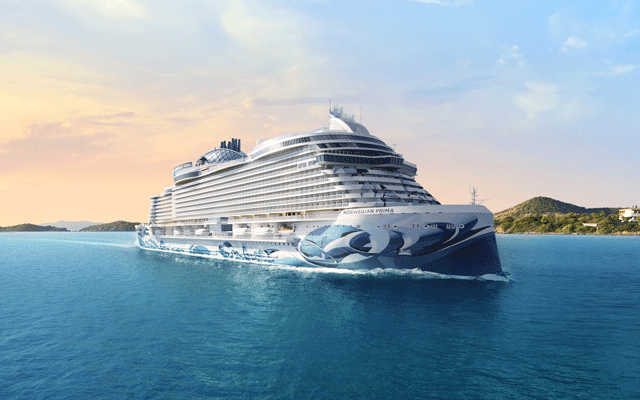Norwegian Cruise Line (NCL) Holdings has committed to pursuing net zero emissions by 2050 across its operations and value chain, as well as to developing short- and near-term greenhouse gas reduction targets to support its path to net zero.
Frank Del Rio, president and CEO, Norwegian Cruise Line, said: “The scope of our net zero ambition spans our entire value chain as we aim to bring key partners, including our vast network of global suppliers, along with us on this transformational journey.

“While we recognise that the pathway will be complex, requiring significant collaboration, innovation and technological advancement, we are committed to doing our part to contribute to the transition to a low-carbon economy.”
NCL’s new climate commitments broaden and strengthen its existing climate action strategy which is centred around three key focus areas: reducing carbon intensity, investing in technology and exploring alternative fuels, and implementing a voluntary carbon offset program.
Working closely with its partners to identify best practices and accelerate decarbonisation efforts, NCL will continually invest in opportunities to reduce emissions including and beyond its fleet while exploring long-term solutions.
Other factors to achieve NCL’s net zero ambition include the development of alternative fuels and critical infrastructure at destinations globally to support the usage of these fuels. As such, NCL is currently actively engaging with partners, including engine manufacturers and classification societies, in planning for a safe and effective methanol engine retrofit.
NCL has also published its first Task Force on Climate-related Financial Disclosures Report (TCFD) which provides critical transparency to its stakeholders. It involved conducting an extensive climate risk screening and identifying priority climate-related risks, with a scenario analysis to estimate the impact of sea level rise, the cost of carbon, and the cruise line’s top physical and transition risks identified under different hypothetical climate scenarios. The assessment results were useful in helping NCL align its risk management and strategic planning processes with the challenges of climate change.
“The release of our inaugural TCFD report demonstrates our desire to continually improve and expand upon our ESG disclosures to provide additional transparency to our stakeholders,” said Jessica John, vice president of ESG, investor relations and corporate communications, Norwegian Cruise Line.
She added: “We are focused on improving our resiliency, and the results of our climate assessment will assist us in further integrating climate-related risks into our strategy and decision-making processes across our company.”




















